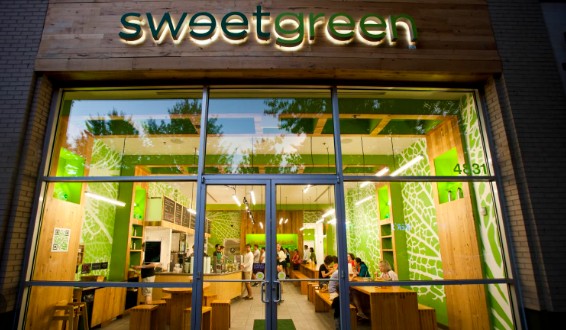Salad Days
Visiting the new Tossed outlet in Knightsbridge around 15 years ago during the early days of the food-to-go company, it felt like experiencing a radically different proposition from the rest of the market, which was still predominantly pushing out rather stodgy food for ‘al desko’ dining.
The bright and breezily colourful interior very much matched the food, with no beige items in sight. It instead offered rainbow foods that most notably filled its salad bowls. Although the company has had its challenges over the years, it is now in the very capable hands of Neil Sebba and Angelina Harrison, who bought it out of administration in 2020.
It now operates 13 sites, with revenues reportedly running at £9m, and it has stated that it is expected to shortly reveal a profit for the first time since it hit the buffers. It is also, interestingly, targeting 50 franchise stores around the UK. To date, it has focused solely on the City of London and other locations in the centre of the capital.
Other salad-focused brands have, over the years, joined Tossed, and each has the common denominator of having all their locations within central London and the more affluent village-like areas around the capital. These smart locales have very much been the natural homes for healthier food concepts that typically have an entry level cost not much short of £10 – and can rise significantly above this amount.
The Salad Kitchen opened its first premises in 2014 and has doubled revenue – to £5m last year – and it states it has achieved profitability each year since 2021. All its outlets are in the City of London, and it aims to open a further seven stores by the end of 2026. Meanwhile, The Salad Project has grown to seven branches since 2021 and hopes to nearly double its roughly £13m of sales in 2024 to £22m this year – serving 6,000 salads daily – as it opens four more branches. Needless to say, they are all located in central London and the financial district.
Atis joined the scene in 2019 and has just opened its 11th unit, in Battersea Power Station. You do not need me to tell you where it’s other ten outlets are located. The business recently raised £8m to help fund these new units, as well as invest in technology, according to the founders, Phil Honer and Eleanor Warder.
They are open about the challenges and cite technology as “frightening”, and have taken the brave decision to build their own solution as they recognise it will be critically important to making the business model stack up. They have also referenced, with great honesty, the complexity inherent in offering freshly made salads and bowl foods. With 65 fresh stock keeping units on the salad bar they have stated “you need to manage this beast to make it profitable”.
These thoughts mirror those of the senior executives at the pioneering salad chain Sweetgreen, which set up shop in 2007 in the US. It floated in 2021, but has since lost 75% of its market capitalisation as the realities of operating a salad-focused food business have proved a challenge for the company. It has struggled to reach profitability on the back of the higher overheads involved with such a proposition – notably perishable goods prepped by humans in each outlet. This is why it has been investing massively in trying to automate its back of house processes and has developed its ‘infinite kitchen’ model.
The margin advantage this gives the business is giving it the confidence to not only boost profitability in its existing outlets – where it can retrofit the tech – but also enable it to build out its portfolio of sites beyond the obvious current affluent locations in cities like New York, Los Angeles, Chicago, Dallas, Miami and Boston. It has also extended its menu to appeal to a broader grouping of customers and to enable it to experiment with opening in the evenings, where salads don’t really cut it.
National scale and profitability across its business is something that Sweetgreen continues to tussle with and is undoubtedly a scenario the growing number of UK salad brands will recognise. They will have to overcome such hurdles if they are to fulfil the wishes and demands of their founders and investors.
The performance of the first franchised Tossed outlets outside the capital will be very informative about how much appetite the mainstream customer has for these brands and whether the business model stacks up at the current price points. Adding to the pressure is growing competition – with Tortilla announcing it has introduced protein pots onto its summer menu and Pret A Manger launching a Super Plates category into 250 shops, aimed directly at the salad specialists’ market.
Glynn Davis, editor, Retail Insider
This piece was originally published on Propel Info where Glynn Davis writes a regular Friday opinion piece. Retail Insider would like to thank Propel for allowing the reproduction of this column.


